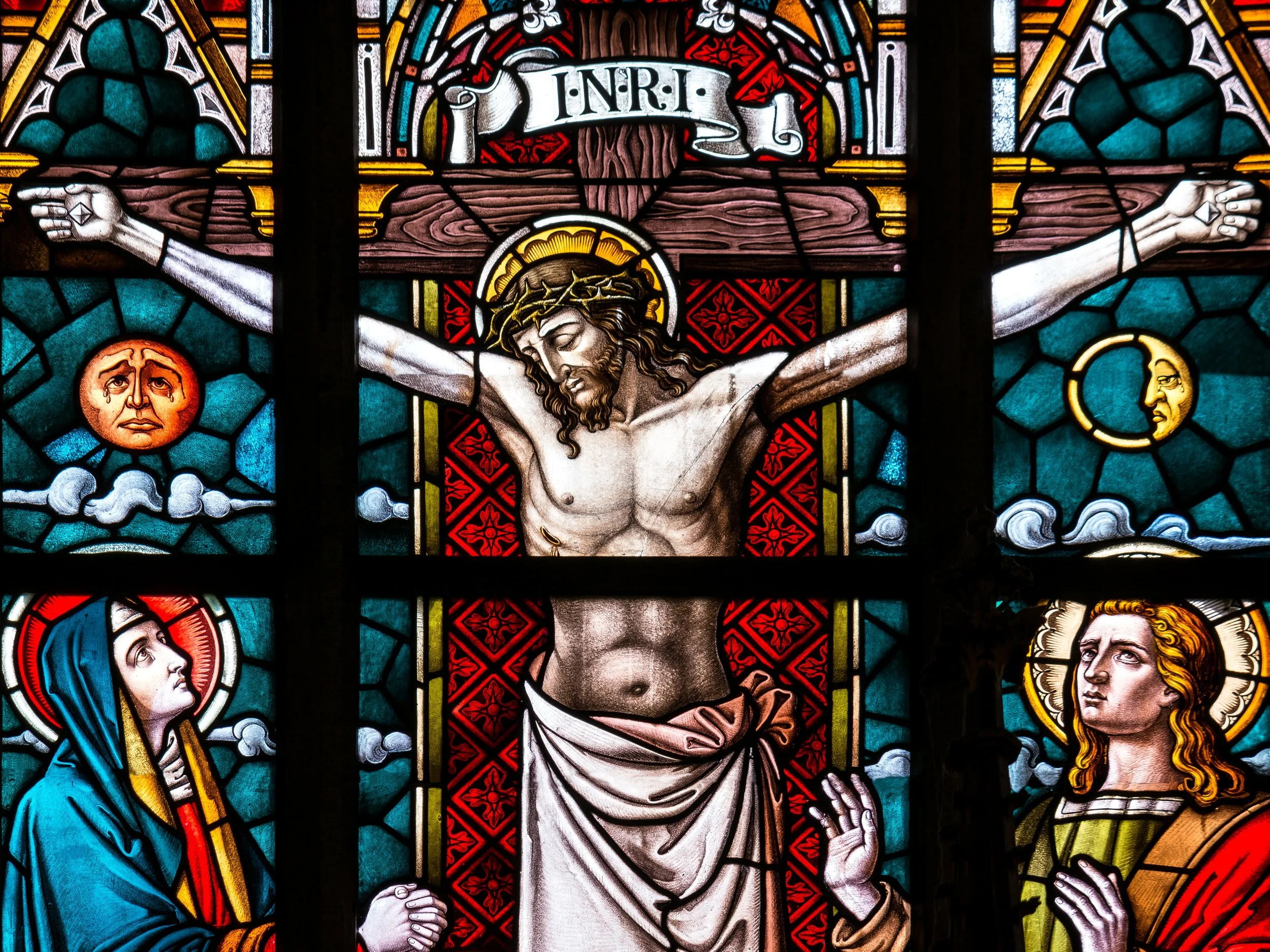Keeping the Gospel in front of you daily is even more important than making sure you eat three square meals a day. Continually reminding yourself of your standing before God in Christ is essential if you are going to live as a disciple of Jesus Christ in such a way as to render loving obedience to Him. All our striving to live according to the Law of God apart from a functional faith in the Gospel is both frustrating and fruitless.
Read MoreThere is no need for me to give a lengthy account of the rampant gun violence and other massive acts of violence in America. You know about Las Vegas, Manhattan, and now Sutherland Springs. You know about the countless events that have preceded these more recent ones. It is horrific and is increasingly so as we grow ever more numb to it and it grows ever more normal to us. How tragic that our children have never known a world without all of this. Can they ever know such a world?
Read MoreI know, you have been told that human souls are immortal: they can never die. You have been told “you have an immortal soul and are capable of living in immortal glory.”[1] But what if the Bible spoke of souls as dying, and referred to the dead as dead souls. Would that make a difference.? Would you have to re-examine your theology of the soul? I hope you would.
Read MoreWhen I was invited to write this paper, there was a discussion about the possibility of coming to “one mind” about any issue in the AC churches. Is this possible? We all know that if three Advent Christians have a debate, the outcome is four opinions--at least!
Read MoreBut our God is no mere object to be worshipped, He is a subject, a someone, The Someone, the Hero, the protagonist of the greatest story ever told. He is active, not passive, close not far away. He moves and we are moved. He pours out His grace, and we receive and return it back with praise. Theologian Marva Dawn captures the picture well, “The gifts of worship flow from God the subject and return to God as the object of our reverence.”[2]
Read MoreThe reason we are talking about unity is because we have a sense that we are lacking in unity.
Read MoreWithin the context of the Reformation each sola affirms something and denies something else. The final authority of the church is sola Scriptura (by Scripture alone) rather than tradition.[1] Salvation comes sola fide (by faith alone) rather than by a combination of faith and good works,[2] as well as sola gratia (by grace alone) which excludes any and all human effort or cooperation, in solus Christus (Christ alone) as the only mediator of that grace rather than penance, sacraments, the Priests, the heavenly Saints, or Mary, all to and for soli Deo Gloria (Glory to God alone) rather than man.
Read MoreThe first time Martin Luther thought he was going to die he cried out, “O, Mary help!”[i] The second time, only a few years later, during a mighty thunderstorm he fell off his horse and screamed, “Save me, St. Anne, and I’ll become a monk!”[ii] Years later after washing in the cleansing waters of Gospel grace and drinking the living water of Gospel life thus truly becoming born-again he would launch the Protestant Reformation. In one sermon he would reflect back soberly saying, “St. Ann was my idol.” He told the congregation the despicable truth of the human heart is that “it is easier for us humans to believe and trust in everything else than in the name of Christ, who alone is all in all…”
Read MoreRecently in Advent Christian Voices, there was a call for a conversation discussing what it means to be a missional church. The idea of a missional church is not new. Two decades ago the term 'missional church' was coined. The term suggested that "the church is to be understood not as an organization with a mission; rather the church's very identity is mission” (Ott, Strauss and Tennent 2010, 197 in Raven, 2017, 164).
Read MoreThe world is supposed to end on Saturday. That’s at least according to some crackpot astronomers/Biblical scholars. I do not want to give them the time of day in this space, but you can find fitting responses here and elsewhere. As Advent Christians, we are no strangers to foolhardy Biblical calculations and date-setting. After the excesses of William Miller and the subsequent “Great Disappointment”, Advent Christians know better than anyone else the futility of trying to pin down the time of Christ’s return, of which he himself said, "But concerning that day or that hour, no one knows, not even the angels in heaven, nor the Son, but only the Father.” [Mark 13:32 ESV]
Read MoreIt was another morning like any other. By some titanic feat I managed to get myself out of bed to plod my way downstairs for breakfast. Breaking past the stairwell wall and coming to the railed banister, I could see my mom reading her Bible in the recliner as she always did, her little dog cuddled up beside her. It was just another day, same as any other.
Read MoreSome people treat church like a Hollywood gala we see on the news. The mission of those in attendance is to impress and get attention. Some treat church like a concert. Their mission is to attend, enjoy it and go home. Is that all the church is meant to be? I think church should be like my dog treats me or other guests who come into our home. I am the most important thing to my dog, and he has no greater joy than to be with me; to have my attention, and for me to love his attention…
Read MoreIn the article, “Where Are Tomorrow’s Leaders?” published recently on the Advent Christian Voices website, and reprinted from the Advent Christian Witness, veteran Advent Christian pastor Steven Brown poses an important question. He argues that the traditional model of theological education in a seminary or divinity school no longer serves the needs of the Advent Christian Church.
Read MoreFor about one hundred years Advent Christians relied principally on two colleges to prepare church leaders.
While formal theological education was not universally valued in the churches, the schooling model was believed by many to be the primary incubator for people called to ministry. Training leaders in theological colleges (and seminaries) was entirely consistent with accepted practice in the wider North American church, reflecting an educational paradigm highly regarded in the last half of the 19th century into the present era.
Read MoreIf you’re like me you love the Bible. I love to be around other people discussing the Word, what it means, how it affects our lives and everything about it. I recently watched a Francis Chan Sermon that truly convicted my heart.
Read MoreBefore I get on with what I am about to write, I want to first dispel any narrow association that might be assumed in my use of the word “mission”. Very often when we hear the word “mission” we think “missions”, and more specifically “foreign missions”. This is to be expected since the sort of talk in our churches that typically involves words that sound like “mission” are usually in association with short-term missions trips and supporting foreign missionaries.
Read MoreThe Facebook posts of three Millennial pastors caught my eye — one frolicking on the beach with his two young boys, another shouldering his daughter as they watched a 4th of July parade and a third holding, high above his head, a grinning son.
Read MoreOriginal Post: Identity: What does it mean to be an Advent Christian?
Answer: With the passing of our new Statement of Faith we have given ourselves a much greater sense of identity. Advent Christians are Evangelical followers of Jesus Christ who seek to make Christ’s name known throughout the world with a longing for the imminent return of Christ, finding our only hope in Him.
Read MoreIn a recent Advent Christian Voices article, Corey McLaughlin examines conditionalists’ treatment of Revelation 20:7-10 and concludes that our exegesis of that text has been “poor”, and based on “logic stretched thin.” He suggests that our problem is that we are trying to make Revelation 20 say that the lake of fire will come to an end, but that the text insists that it will not. To accurately reflect what is taught in Revelation 20:10, conditionalism will need to be modified to allow for the eternal conscious torment of the devil and his demonic agents.
Read More



















